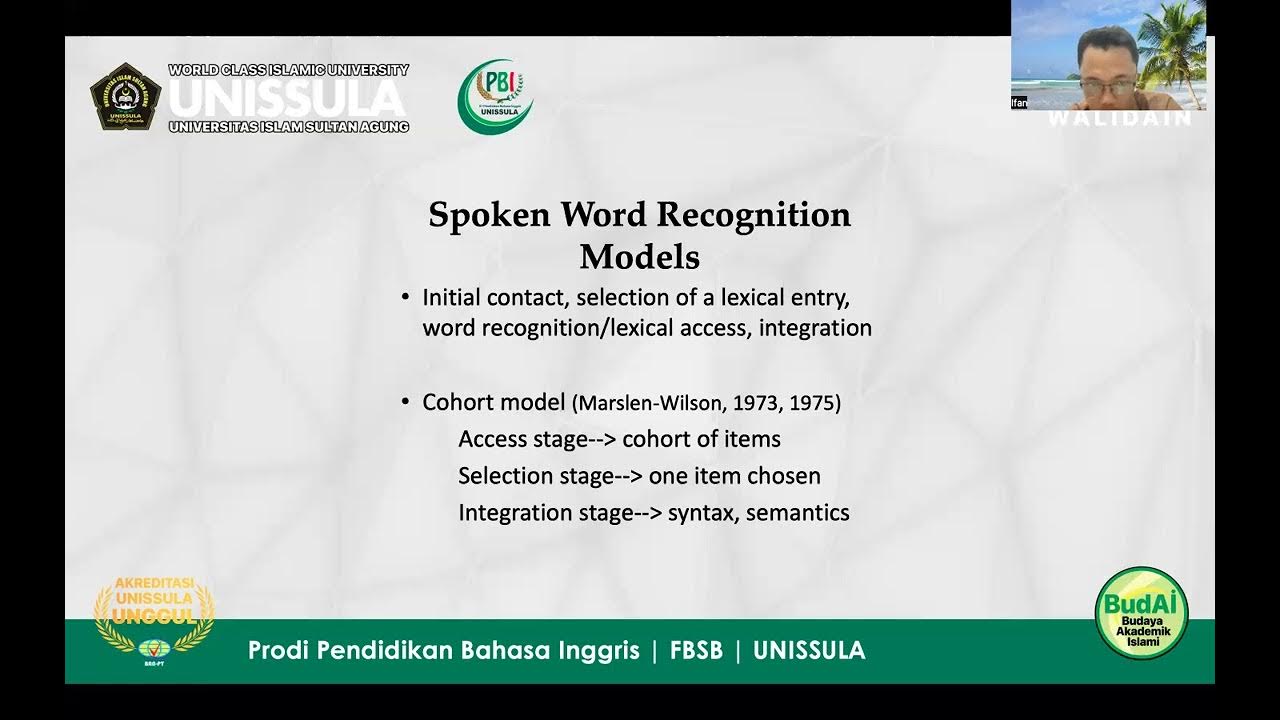Stages of Language Acquisition
Summary
TLDRThis video explores the stages of language acquisition, differentiating it from language learning. It outlines the critical period for effective language development, emphasizing that acquisition begins at birth and is influenced by caregiver speech. The stages include crying, cooing, babbling, and the emergence of first words, culminating in complex sentence structures and vocabulary expansion by age eight. The video dispels common myths, highlighting that children are not mere imitators but active learners who identify linguistic patterns. Understanding these stages provides insight into how children master language and communicate effectively.
Takeaways
- 👶 Language acquisition starts at birth and is an unconscious process, unlike language learning, which is deliberate and begins later.
- ⏳ There is a critical period for language acquisition, extending from birth to puberty, during which language must be acquired for effective use.
- 🗣️ Caregiver speech, characterized by exaggerated pitch and simpler vocabulary, is often used when interacting with children, but it's not universal across all cultures.
- 👶 The first stage of language acquisition is crying, followed by cooing and reduplicated babbling, where children repeat the same syllable.
- 🔤 Variegated babbling comes next, involving the combination of different syllable sounds, leading to the production of individual words.
- 🗨️ Children's first words typically relate to their immediate environment and experiences, often simple terms they recognize.
- 📏 Around two years of age, children begin using telegraphic speech, which consists of simple phrases that convey meaning efficiently.
- 📊 Children are not mere imitators; they actively analyze and determine language patterns from their surroundings.
- 🚫 Correcting a child’s language use does not significantly aid in faster or more effective language acquisition.
- 🧠 By age eight, children typically have mastered their acquired languages, displaying complex understanding and use of language, including sarcasm and humor.
Q & A
What is the difference between language acquisition and language learning?
-Language acquisition is an unconscious process that begins at birth, while language learning is a deliberate process that starts later in childhood.
What is a critical period for language acquisition?
-The critical period for language acquisition lasts from birth until puberty, during which a child can most effectively acquire language.
How do newborns communicate?
-Newborns primarily communicate through crying, which is their only form of expression for a while.
What is cooing?
-Cooing involves producing extended vowel sounds as infants begin to explore their vocal capabilities.
What is reduplicated babbling?
-Reduplicated babbling is the repetition of the same syllable, such as 'mama' or 'dada,' and occurs before true language use.
What marks the transition to variegated babbling?
-Variegated babbling involves combining different syllable sounds and typically follows the phase of reduplicated babbling.
What types of words do children usually say first?
-Children's first words often include objects or people they see in their immediate environment.
What is telegraphic speech?
-Telegraphic speech is a stage where children begin to combine words into simple phrases, often omitting less critical words.
What are common errors children make during language acquisition?
-Common errors include over-generalization of grammatical rules and over-extension of word meanings.
Is correction effective for helping children learn language?
-No, there is no evidence that correcting a child significantly aids their language learning; children acquire language at their own pace.
Outlines

This section is available to paid users only. Please upgrade to access this part.
Upgrade NowMindmap

This section is available to paid users only. Please upgrade to access this part.
Upgrade NowKeywords

This section is available to paid users only. Please upgrade to access this part.
Upgrade NowHighlights

This section is available to paid users only. Please upgrade to access this part.
Upgrade NowTranscripts

This section is available to paid users only. Please upgrade to access this part.
Upgrade NowBrowse More Related Video

Bahasa Manusia dan Pemerolehannya (Teori Behaviorisme VS Nativisme)

Language Acquisition and Language Learning in ELT | Definition & Difference | MA/ Ba/ NET #pedagogy

FOCUS ON PROCESS: HOW CHILDREN ACQUIRE LANGUAGE (INITIAL LISTENING)

Considerations in Language Acquisition

TEAL_2 Understanding Language Acquisition

Teori Pemerolehan Bahasa✨
5.0 / 5 (0 votes)